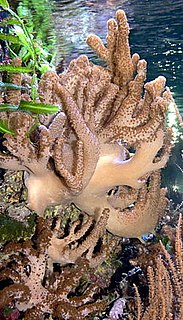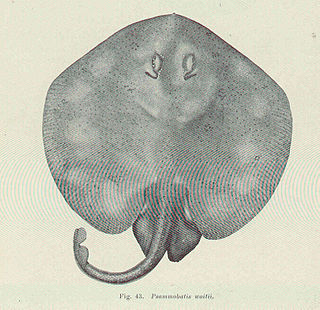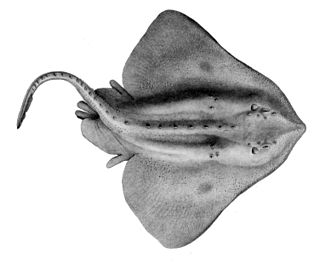
Figure skating is a sport in which individuals, duos, or groups perform on figure skates on ice. It was the first winter sport included in the Olympics, in 1908. The four Olympic disciplines are men's singles, ladies' singles, pair skating, and ice dance. Non-Olympic disciplines include synchronized skating, Theater on Ice, and four skating. From juvenile through senior-level competition, skaters generally perform two programs which, depending on the discipline, may include spins, jumps, moves in the field, lifts, throw jumps, death spirals, and other elements or moves.

Short track speed skating is a form of competitive ice speed skating. In competitions, multiple skaters skate on an oval ice track with a length of 111.12 metres (364.6 ft). The rink itself is 60 metres (200 ft) long by 30 metres (98 ft) wide, which is the same size as an Olympic-sized figure skating rink and an international-sized ice hockey rink. Short track speed skating is the sister sport to long track speed skating and the cousin sport to inline speed skating.

Inline skates are a type of roller skate used for inline skating. Unlike quad skates, which have two front and two rear wheels, inline skates typically have two to five wheels arranged in a single line. Some, especially those for recreation, have a rubber "stop" or "brake" block attached to the rear of one or occasionally both of the skates so that the skater can slow down or stop by leaning back on the foot with the brake skate.

Elasmobranchii is a subclass of Chondrichthyes or cartilaginous fish, including the sharks and the rays, skates, and sawfish. Members of this subclass are characterised by having five to seven pairs of gill clefts opening individually to the exterior, rigid dorsal fins and small placoid scales on the skin. The teeth are in several series; the upper jaw is not fused to the cranium, and the lower jaw is articulated with the upper. The details of this jaw anatomy vary between species, and help distinguish the different elasmobranch clades. The pelvic fins in males are modified to create claspers for the transfer of sperm. There is no swim bladder; instead, these fish maintain buoyancy with large livers rich in oil.

An egg case or egg capsule is the casing that surrounds the eggs of oviparous sharks, skates, and chimaeras. Egg cases typically contain one embryo, except for big skate and mottled skate egg cases, which contain up to 7 embryos. Oviparity is completely absent in the superorder Squalomorphii.

Cleroidea is a small superfamily of beetles. Most of the members of the group are somewhat slender, often with fairly soft, flexible elytra, and typically hairy or scaly.

Rajiformes is one of the four orders in the superorder Batoidea, flattened cartilaginous fishes related to sharks. Rajiforms are distinguished by the presence of greatly enlarged pectoral fins, which reach as far forward as the sides of the head, with a generally flattened body. The undulatory pectoral fin motion diagnostic to this taxon is known as rajiform locomotion. The eyes and spiracles are located on the upper surface of the head and the gill slits are on the underside of the body. Most species give birth to live young, although some lay eggs with a horny capsule.

The New Zealand smooth skate is a skate of the genus Dipturus, found around New Zealand at depths between 15 and 1,300 m.

The wattle-necked softshell turtle, also commonly known as Steindachner's soft-shelled turtle, is an endangered Asian species of softshell turtle and the only member of the genus Palea. The shell of females of this freshwater turtle reaches up to 44.5 cm (17.5 in) in length, while it reaches up to 36 cm (14 in) in males, which however have a longer tail than the females.

Alcyonacea, or soft corals, is an order of corals which do not produce calcium carbonate skeletons. Formerly known as gorgonians, they are sessile colonial cnidarians found throughout the oceans of the world, especially in the tropics and subtropics. Common names for subset of this order are sea fans and sea whips and are similar to the sea pen, a soft coral. Individual tiny polyps form colonies that are normally erect, flattened, branching, and reminiscent of a fan. Others may be whiplike, bushy, or even encrusting. A colony can be several feet high and across but only a few inches thick. They may be brightly coloured, often purple, red, or yellow. Photosynthetic gorgonians can be successfully kept in captive reef aquariums.

The barndoor skate is a species of marine cartilaginous fish in the skate family Rajidae of the order Rajiformes. It is native to the northwestern Atlantic Ocean, and is found from the Grand Banks of Newfoundland and the southern side of the Gulf of St. Lawrence south to North Carolina. The fish is one of the largest skates found in the North Atlantic Ocean, reaching lengths up to 1.5 m (5 ft). It is carnivorous, feeding on invertebrates and other fish found near the sea floor.

The spotback skate is a species of fish in the family Arhynchobatidae. It is found off the Atlantic coasts of Argentina, Brazil, and Uruguay where its natural habitat is over the continental shelf in the open sea. It is a large fish, growing to over a metre in length. It feeds mainly on other fish according to availability, with shrimps, octopuses and other invertebrates also being eaten. Reproduction takes place throughout most of the year, with the eggs being laid in capsules that adhere to the seabed. The spotback skate is the subject of a fishery and is thought to be overfished, resulting in Greenpeace adding the fish to its red list of fish to be avoided, and the International Union for Conservation of Nature listing it as an "endangered species".

Arhynchobatidae is a family of skates and is commonly known as the softnose skates. It belongs to the order Rajiformes in the superorder Batoidea of rays. At least 104 species have been described, in 13 genera. Softnose skates have at times been placed in the same family as hardnose skates, but most recent authors recognize them as a distinct family. Members of the Arhynchobatidae can be distinguished from hardnose skates in having a soft and flexible snout, as well as a more or less reduced rostrum.

Irolita is a genus of softnose skates in the family Arhynchobatidae, commonly known as round skates. There are two species, both endemic to Australia, found over soft bottoms on the outer continental shelves and upper continental slopes, at depths of 50–200 m for the southern round skate and 142–209 m for the western round skate. The distributions of the two species do not overlap.
Pavoraja nitida, commonly known as the peacock skate, is a species of fish in the family Arhynchobatidae. It lives near the soft bottoms of the continental shelf near the coast of Australia and New Zealand in depths ranging from 30 to 390 metres. It produces oblong egg capsules which have stiff horns in each corner and lays them in sandy or muddy flats. Its maximum size is 36.8 cm.

Batoidea is a superorder of cartilaginous fish commonly known as rays. They and their close relatives, the sharks, comprise the subclass Elasmobranchii. Rays are the largest group of cartilaginous fishes, with well over 600 species in 26 families. Rays are distinguished by their flattened bodies, enlarged pectoral fins that are fused to the head, and gill slits that are placed on their ventral surfaces.
The 2010 Skate America was the fourth event of six in the 2010–11 ISU Grand Prix of Figure Skating, a senior-level international invitational competition series. It was held at the Rose Garden Arena in Portland, Oregon on November 11–14. Medals were awarded in the disciplines of men's singles, ladies' singles, pair skating, and ice dancing. Skaters earned points toward qualifying for the 2010–11 Grand Prix Final.
The 2011 Skate America was the first event of six in the 2011–12 ISU Grand Prix of Figure Skating, a senior-level international invitational competition series. It was held at the Citizens Business Bank Arena in Ontario, California on October 21–23. Medals were awarded in the disciplines of men's singles, ladies' singles, pair skating, and ice dancing. Skaters earned points toward qualifying for the 2011–12 Grand Prix Final.

Raja stellulata, commonly known as the Pacific starry skate, rock skate, prickly skate, or starry skate, is a species of cartilaginous fish in the family Rajidae. It is found on rocky bottoms at 18–982 m depths in the Northeast and Eastern Central Pacific, from Coronado Bank in northern Baja California in Mexico to Barkley Sound in British Columbia, Canada. Females reach a maximum total length of 76.1 cm and a maximum age of 15 years, while males can be up to 71.7 cm long and live up to 14 years; the total length at birth is 15.5–22.5 cm. This skate prefers cold water with a temperature of 4.1–11.6°C.



















